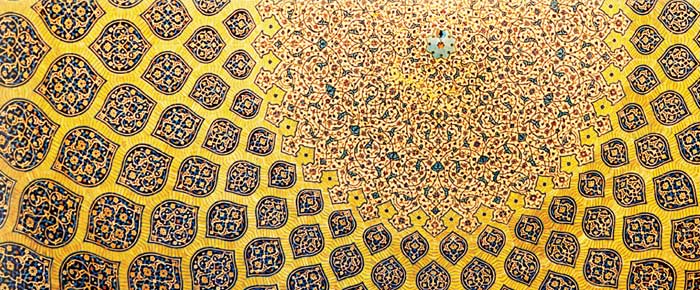
Those who have visited the northern Tehran suburb of Lavizan can attest to the magnificent beauty of its park. Lavizan is home to one of the finest parks in Iran's capital city. But its natural beauty belies its military significance: Lavizan is the epicenter of Iran's nuclear warhead program run by Mohsen Fakhrizadeh Mahabadi;1 one of the key training centers of the Islamic Revolutionary Guards Corps (IRGC) Qods Force,2 to which members of terrorist organizations such as Hezbollah,3 Hamas4 and the Taliban5 go to for training; and the place of residence of one of the sons of Bin Laden, Saad Bin Laden,6 king-pin al-Qaeda financier, Yasin al-Suri,7 and formerly that of Saif al-Adel, a senior military commander of al-Qaeda.8 It is clear that Iran and al-Qaeda are now bound together by the old adage, "the enemy of my enemy is my friend."
It is no exaggeration to say that Iran is now at the very heart of international terrorism and its principal bankroller. Support for al-Qaeda, although growing, pales in significance by comparison to that given to Hezbollah,9 Iran's terror organization of choice.10 For its part, Hezbollah has received at least $600 million from Iran.11 Iran has also given over $120 million to Hamas.12 In an interview with Asharq Al-Awsat, Abu Ahmed, the spokesman for the al-Quds Brigade the Islamic Jihad movement's military wing, said that Iran was now their largest benefactor.13
Iran, the State Sponsor of Terrorism Bar None
On January 19, 1984, the U.S. Department of State designated Iran a state sponsor of terrorism.14 In the 2010 Country Reports on Terrorism, the State Department concluded that: "Iran remained the most active sponsor of terrorism in 2010." According to the report, "Iran provided weapons, training and funding to HAMAS and other Palestinian terrorist groups, including Palestine Islamic Jihad (PIJ) and the Popular Front for the Liberation of Palestine-General Command (PFLP-GC). Iran has provided hundreds of millions of dollars in support to Lebanese Hizballah and has trained thousands of Hizballah fighters at camps in Iran."15
On December 23, 2006, the United Nations passed Security Council Resolution (UNSCR) 1737, the first of 4 resolutions (1737, 1747, 1803 and 1929) imposing sanctions on Iran for its clandestine nuclear program. UNSCR 1737 banned the supply of nuclear-related materials and technology to Iran, and froze the assets of key individuals and companies related to the program.16 UNSCR 1929 lays the foundation for robust international sanctions in its call to member states to prevent the provision of financial services (including banking, insurance and reinsurance), if there are reasonable grounds to believe that such services could contribute to Iran's nuclear or missile programs.17 Meanwhile, Iran continues steadfastly in its pursuit of a nuke. The November 18, 2011, report of the International Atomic Energy Authority (IAEA) identifies the existence of enough nuclear material for Iran to build four nuclear devices. Chillingly, the annex to the report in almost exhaustive detail catalogs the ever growing nuclear weaponization program of Iran.18 In early 2011, the UK government alleged that Iran had carried out covert tests of a missile that could carry a nuclear warhead.19 At the present pace, Iran could have a nuclear weapon by as early as 2013.20
The U.S. Sanctions Regime
In response to Iran's support of terrorism and race for a nuke, the United States has created an extensive array of sanctions, which stretch back to Executive Order (EO) 12170 issued in November 1979 which blocked all property and interests in property of the Government of Iran and the Central Bank of Iran subject to the jurisdiction of the United States, and now includes 19 subsequent Executive Orders. The cornerstone of the U.S. sanctions framework is the Iran Sanctions Act of 1996 (ISA), as amended in particular by the Comprehensive Iran Sanctions, Accountability and Divestment Act of 2010(CISADA), as well as asset (31 CFR Part 535), transactions (31 CFR Part 560), financial (31 CFR Part 561) human rights abuses (31 CFR Part 562) and sanctions regulations.21
On July 1, 2010, President Obama signed CISADA. Section 104 of the Act covers correspondent and payable through accounts of a foreign financial institution with a U.S. financial institution. It requires the U.S. institution to perform an audit of the activities of the foreign institution. Where it is found in the audit that the foreign institution is facilitating the efforts of the IRGC, the government of Iran, the Central Bank of Iran or any other Iranian financial institution, to acquire or develop weapons of mass destruction (WMD) or delivery systems for WMD; or provide support for organizations designated as foreign terrorist organizations; or support for acts of international terrorism; or facilitates the activities of a person subject to financial sanctions; or engages in money laundering in furtherance of these activities, it is to be reported to the U.S. Department of the Treasury. Wherein, the U.S. financial institution is to report significant transaction(s) or financial services for the Iranian government, IRGC, a sanctioned Iranian entity, a proliferator of WMD or delivery systems of WMD, or the support of international terrorism. Also, the U.S. financial institution is to certify that to the best of its knowledge the foreign financial institution is not knowingly engaging in any such activity. Lastly the U.S. financial institution is to establish due diligence policies, procedures and controls, as described in 31 USC Section 5318 (i).22 In short, the Act puts the onus on U.S. financial institutions to audit and certify that their foreign correspondent banks are not knowingly facilitating or supporting Iran's nuclear or terrorist activity.
CISADA also targets knowingly supporting through selling, leasing or providing goods, services or technology with a fair market value of $1 million or $5 million in aggregate over a 12 month period for the development, maintenance and expansion of Iran's petroleum resources or domestic production of refined petroleum products or an investment in the same of $5 million or$20 million in aggregate over a 12 month period, as well as the importation of refined petroleum products into Iran with a fair market value of $1 million or $5 million in aggregate over a 12 month period. In terms of the import of refined petroleum products, the provisions include insuring or reinsuring, financing or brokering such deals, as well as the provision of shipping services or the shipping of such products to Iran.
Under CISADA companies bidding on U.S. government procurement contracts must certify that they do not engage in any activity regarding Iran that is prohibited by the ISA and CISADA. False certifications can result in termination of ongoing contracts and federal contract debarment for up to three years.
The financial provisions of CISADA (sections 103, 104 and 105) are implemented through the Iranian Financial Sanctions Regulations (IFSR) issued by the U.S. Department of the Treasury on August 16, 2010. Wherein, the Final Rule states that upon a finding by the Secretary of the Treasury that a foreign financial institution knowingly engaged in sanctionable activity, the Secretary will either sanction or designate the said foreign institution. Thus, the IFSR allows the Treasury to prohibit a U.S. financial institution from opening or maintaining a correspondent or payable through account on behalf of a designated foreign financial institution that has been found to knowingly facilitate significant transactions or provide significant financial services to Iranian-linked financial institutions or IRGC affiliates designated by the United States.23
Any U.S. person who violates the correspondent account provisions of the IFSR may be subject to civil penalties of up to the greater of $250,000 or twice the transaction value, and criminal penalties for willful violations of up to $1 million and/or 20 years in prison.
A U.S. financial institution may be subject to civil penalties of up to the greater of $250,000 or twice the transaction value, if any person that it owns or controls violates the IFSR prohibition on engaging in any transaction with or benefitting the IRGC or any of its agents or affiliates whose property and interests in property are blocked pursuant to IEEPA, and if the U.S. financial institution knew or should have known that the person violated the IFSR.24
On May 23, 2011, President Obama issued Executive Order 13574, which prohibited any making of loans or providing credits, transactions in foreign exchange, transfers or credit or payments in which an Iranian sanctioned person has any interest.25
On June 20, 2011, a 317 count indictment was filed in New York against 11 corporations and five individuals attempting to assist the sanctioned Islamic Republic of Iran Shipping Lines (IRISL) in evading sanctions. The investigation that led to the indictment found nine banks had been duped into processing $63 million in payments to IRISL via shell companies in Singapore, UK and UAE.26
On July 28, 2011, the U.S. Department of the Treasury designated six members of an al-Qaeda network headed by Ezedin Abdel Aziz Khalil, a prominent Iran-based al-Qaeda facilitator, operating under an agreement between al-Qaeda and the Iranian government.27
On October 5, 2011, the U.S. Department of the Treasury issued the Final Rule to implement Section 104(e) of CISADA, requiring upon the written request of FinCEN that U.S. banks inquire of and report on whether their respective correspondent foreign banks maintain correspondent accounts for or have processed one or more funds transfers within the preceding 90 calendar days on behalf of an Iranian-linked financial institution designated under the International Emergency Economic Powers Act (IEEPA) or the IRGC.28
On November 18, 2011, FinCEN found Iran a jurisdiction of primary money laundering concern under Section 311 of the USA PATRIOT Act based on Iran's support of terrorism, pursuit of WMD, and engagement on the part of Iranian financial institutions in deceptive and illicit activities designed to evade sanctions. For the first time, the U.S. Department of the Treasury identified the entire Iranian financial sector, including the Central Bank of Iran, as well as private banks, as posing a financial risk to the global financial system.29 As a result of the finding, FinCEN issued a Notice of Proposed Rule Making (NPRM) imposing a special measure on Iran. The special measure authorizes a prohibition against the opening or maintaining of correspondent accounts by any domestic financial institution or agency for or on behalf of a foreign banking institution, if the correspondent account involves the targeted jurisdiction, i.e., Iran. U.S. financial institutions would be required to apply special due diligence to their correspondent accounts, including: First, notification to correspondent account holders that it knows or has reason to know that the foreign financial institution provides services to Iranian banking institutions, that such correspondents may not provide Iranian banking institutions with access to the correspondent account or it will have its account terminated. Second, taking reasonable steps based on transactional records maintained by the covered financial institution in the normal course of business to identify any indirect use of its correspondent accounts by Iranian banking institutions. The U.S. financial institution should take a risk-based approach which takes into account risk factors such as the type of services it offers, and the geographic locations of its correspondents.30
On November 19, 2011, President Obama signed Executive Order 13590 authorizing the imposition of sanctions on persons that knowingly sell, lease or provide goods, services, technology or support for Iran's petroleum resources and petrochemical sectors that could directly and significantly contribute to its development, maintenance or enhancement. Such activity could trigger sanctions if a single transaction related to Iranian petroleum resources in Iran has a fair market value of $1 million or more, or is comprised of a series of transactions over a 12 month period with an aggregate fair market value of $5 million or more. With respect to the petrochemical sector in Iran, where a single transaction has a fair market value of $250,000.00 or more, or over 12 months the transactions totals $1 million or more. The scope of the sanctions include foreign exchange, banking and property transactions, as well as loans from U.S. financial institutions of $10 million or more in the United States. Also, the sanctions may prohibit U.S. government export-import bank financing, export licenses and procurement contracts, as well as imports into the USA or for financial institutions designation as a primary dealer or repository of U.S. government funds. The completion of existing contracts is not sanctionable. However, any contracts that are entered into, renewed or amended, could trigger sanctions. Significantly, EO 13590 does not cover the purchase of petroleum resources or petrochemical products from Iran, or the shipping of those products from Iran, absent other sanctionable conduct.31
On December 22, 2011, United States District Court Judge for the Southern District of New York, George B. Daniels, entered a judgment against the government of Iran, various government owned entities, including the National Iranian Tanker Corporation (NITC), National Iranian Oil Company (NIOC), National Iranian Gas Company, Iran Airlines, Central Bank of Iran, IRGC, as well as Ayatollah and Supreme Leader Khamenei and ex-President Rafsanjani, for materially aiding and supporting al-Qaeda in its terrorist attacks of September 11, 2001. For example, Iranian border inspectors refrained from stamping the passports of 8 to 10 of the 9/11 hijackers because evidence of travel through Iran to al Qaeda training camps in Afghanistan would have prevented the hijackers from obtaining visas at U.S. embassies abroad or gaining entry into the United States. Abolghasem Mesbahi testified at the trial that he was part of an IRGC-MOIS operational task force code-named "Shaitan dar Atash" ("Satan in Flames"), which included in its planning the crashing of hijacked passenger airliners into the World Trade Center, the Pentagon, and the White House. Mesbahi also testified that in 2000, Iran used front companies to obtain a Boeing 757–767–777 flight simulator for training the 9/11 hijackers.32
On December 31, 2011, President Obama signed H.R. 1540 (the "National Defense Authorization Act for Fiscal Year 2012."). Section 1245 of the new law imposes sanctions specifically on the Central Bank of Iran that handles Iranian petroleum transactions.33 The net result is that "the sanctions will force (countries/businesses to make) a choice between buying Iranian oil or engaging in the US financial system," said Brian Katulis, a security expert at the Center for American Progress.34 In January 2012, in response to the U.S. move, the European Union announced it would also impose an oil embargo on Iranian crude oil.35 For the U.S. based entity who does not buy Iranian oil, there will be little direct pain, unless the absence of Iranian oil significantly affects the world economy, a result they are hoping to avoid. However, for countries such as Italy and Japan, compliance will come at a price, so even before the ink was dry their governments wanted to avail themselves of the waivers in the raft of new U.S. Iranian sanctions legislation.36 As it is, the Europeans plan to roll out the embargo in stages, in order to reduce the pain caused by such a measure.
On January 23, 2012, in response to the U.S. moves, the Council of the European Union decided to ban after July 1, 2012, the import, purchase and transport of Iranian crude oil and petroleum products into the 27 member countries of the European Union (EU). The oil embargo was also to include related finance and insurance. In addition, the Council prohibited the importation into the EU of Iranian petrochemical products, joint-ventures with and new investment in, as well as the exporting of key equipment and technology to the Iranian petrochemical sector. Also, the Council froze within the EU the assets of the Central Bank of Iran (CBI). Further, the Council forbade the trade by EU persons in gold, precious metals and diamonds with "Iranian public bodies" and the CBI. The Council's decisions significantly enhanced the existing EU sanctions framework, which already included the December 1, 2011, designation of 37 persons and 143 entities determined to be involved in Iran's nuclear or ballistic missile program, or the Islamic Revolutionary Guard Corps or Islamic Republic of Iran Shipping Lines (IRISL).37
Sanctions Loopholes
Although the ISA/CISADA legal framework in terms of compliance has the potential to place as much of a burden on U.S. financial institutions as Sarbanes-Oxley does on U.S. publicly traded companies, it is riddled with loopholes. The problem is exacerbated by the reality that Iran has had 40 years of experience in how to circumvent and exploit such loopholes in the sanctions regime. Case in point, a major thrust of CISADA was to ratchet up the pressure on Iran by throttling its attempts to import foreign gasoline which it is economically dependent on. In fact, it has to import up to 40 percent of its gasoline needs.38 However, no restrictions were placed on exporting crude oil, the life blood of the Iranian economy, which enables Iran to import gasoline regardless of whether it is being charged an exorbitant premium for the privilege. For example, Turkish companies were charging Iran a 25 percent premium above market rates.39
In 2008, Iran exported about 2.4 million bbl/d of oil, making it the fourth largest exporter of crude oil in the world with net oil export revenues of $73 billion: Its largest customer was Japan (520 million bbl/d), then China (430 million bbl/d), followed by India (410 bbl/d), South Korea (210 million bbl/d) and Italy (160 million bbl/d). Crude oil and petroleum products account for nearly 80 percent of Iran's total exports.40
In response to CISADA, Iran merely increased its trade with its closest economic partners
In response to CISADA, Iran merely increased its trade with its closest economic partners, most notably China. For its part, China saw the new sanctions as an opportunity to extract deep discounts out of Iran for buying its oil.41 Thus, the volume of China's imported oil from Iran increased by 49 percent in the first half of 2011. Iran remains China's third-largest crude supplier, after Saudi Arabia and Angola, shipping around 540,000 barrels per day (bpd), or more than 10 percent of Beijing's 5.1 million bpd of imports.42 Similarly, Iran has looked to one of its closest political allies to bail it out, Venezuela. In 2009, Iran in anticipation of gasoline import sanctions signed an agreement with Venezuela's energy behemoth Petróleos de Venezuela (PDVSA) to supply it with gasoline.43 In 2011, in response to supplying Iran with gasoline, PDVSA was sanctioned by the U.S., but not its subsidiaries or affiliates, such as U.S. based CITGO.44 Meanwhile, India is trying to line up alternatives to Iranian crude oil, such as increased purchases from Saudi Arabia.45 It is also looking to banks in Turkey, Dubai and Russia to act as financial conduits on its behalf.46 The unintended beneficiary of the sanctions has been Russia, whose Ural crude oil is fetching a premium as European nations scramble to find a substitute to Iranian crude oil. The loser has been the European refinery industry with its margins decimated by the higher price of available crude oil on the spot market.47 Bottom line, for those like China and Russia, who are cashing in, sanctions will prove to be increasingly profitable, much to the detriment of Europe that abides by the United States mandate in order to protect its U.S. market and access to the U.S. Dollar.
In conclusion, the stakes are very high. Iran is marching inexorably toward the amassing of a nuclear arsenal, which will lead to a nuclear arms race in the Middle East, increasing the specter of nuclear war in the region. Consequently, the governments of Europe and the USA are united in their resolve not to let this happen. Economic sanctions are at the heart of this political will. Therefore, financial institutions, energy, shipping and insurance companies should be under no illusions, the threat is real, the sanctions are real, it is a big deal, and non-compliance with the sanctions regime is not an option or a mere cost of doing business.
- Iranian Resistance reveals mullahs' secrets on developing nuclear warheads,The National Council of Resistance of Iran (NCRI), February 21, 2008, http://www.mojahedin.org/pagesEn/printNews.aspx?newsid=1699; Individuals and Entities Designated as Subject to the Travel Notification Requirements and Assets Freeze Imposed by Resolutions 1737 (2006) and 1747 (2007),
- Using the Quds Force of the Revolutionary Guards as the main tool to export the revolution beyond the borders of Iran,Intelligence and Terrorism Information Center at the Israel Intelligence' Heritage & Commemoration Center (IICC), April 2 , 2007, http://www.terrorism-info.org.il/malam_multimedia/English/eng_n/html/iran_e0307.htm
- Farhad Razi, 20 Terrorist training camps in Iran Uncovered, Iran Focus, http://www.globalpolitician.com/print.asp?id=1639
- Senior Hamas operative figure tells London Sunday Times' Gaza Strip correspondent about Iranian and Syria military aid, Intelligence and Terrorism Information Center at the Israel Intelligence' Heritage & Commemoration Center (IICC), March 17, 2008, http://www.terrorism-info.org.il/malam_multimedia/English/eng_n/pdf/hamas_160308e.pdf
- Brian Todd and Pam Benson, Taliban fighters training in Iran, U.S. officials say, CNN, March 23, 2010, http://articles.cnn.com/2010-03-23/world/iran.taliban_1_taliban-fighters-afghan-taliban-iranian-official?_s=PM:WORLD
- Scott Shane, Bin Laden Daughter in Iran Seeks Refuge, The New York Times, December 23, 2009, http://www.nytimes.com/2009/12/24/world/middleeast/24binladen.html
- U.S. Offers Reward For Information On Al-Suri, National Public Radio, December 23, 2011, http://www.npr.org/2011/12/23/144195822/u-s-offers-reward-for-information-on-al-suri; Rewards for Justice Suri, U.S. Department of State, http://www.rewardsforjustice.net/index.cfm?page=suri
- Dina Temple-Raston, Key Al-Qaida Leader Owes Rise To Unlikely Ally: Iran, National Public Radio, June 1, 2011, http://www.npr.org/2011/06/01/136824951/key-al-qaida-leader-owes-rise-to-unlikely-ally-iran; Eli Lake, Iran Is Found To Be a Lair of Al Qaeda, New York Sun, July 17, 2007, http://www.nysun.com/foreign/iran-is-found-to-be-a-lair-of-al-qaeda/58507/ ; Al-Qaida finds safe haven in Iran, MSNBC, June 24, 2005, http://www.msnbc.msn.com/id/8330976/ns/dateline_nbc/t/al-qaida-finds-safe-haven-iran/
- Exporting the Iranian revolution to Lebanon, Intelligence and Terrorism Information Center at the Israel Intelligence' Heritage & Commemoration Center (IICC), December 8, 2008, http://www.terrorism-info.org.il/malam_multimedia/English/eng_n/pdf/iran_e003.pdf
- Two rare statements about Iran-Hezbollah relations, Intelligence and Terrorism Information Center at the Israel Intelligence' Heritage & Commemoration Center (IICC), August 10, 2009, http://www.terrorism-info.org.il/malam_multimedia/English/eng_n/pdf/hezbollah_e013.pdf
- Roee Nahmias, Report: Hizbullah now $1B richer, March 4, 2009, http://www.ynetnews.com/articles/0,7340,L-3680830,00.html
- Hamas secures more Iranian funding, Al-Jazeera, March 8, 2007, http://www.aljazeera.com/news/middleeast/2007/03/2008525122240439340.html
- Kifah Zaboun, Al-Quds Brigade: Iran is Our Biggest Benefactor, Asharq Al-Awsat, January 12, 2010, http://www.asharq-e.com/news.asp?section=1&id=19495
- U.S. Department of State, State Sponsors of Terror, http://www.state.gov/s/ct/c14151.htm
- Country Reports on Terrorism 2010, Chapter 3: State Sponsors of Terrorism, http://www.state.gov/s/ct/rls/crt/2010/170260.htm
- UN Security Council, 5612th Meeting, SECURITY COUNCIL IMPOSES SANCTIONS ON IRAN FOR FAILURE TO HALT URANIUM ENRICHMENT, UNANIMOUSLY ADOPTING RESOLUTION 1737, December 23, 2006, http://www.un.org/News/Press/docs/2006/sc8928.doc.htm
- U.S. Department of the Treasury, Written Testimony by Under Secretary for Terrorism and Financial Intelligence Stuart Levey Before the House Committee on Foreign Affairs, 12/1/2010, http://www.treasury.gov/press-center/press-releases/Pages/TG985.aspx
- Implementation of the NPT Safeguards Agreement and relevant provisions of Security Council resolutions in the Islamic Republic of Iran, Report by the Director General to the Board of Governors of the IAEA, November 18, 2011, http://www.iaea.org/Publications/Documents/Board/2011/gov2011-65.pdf
- Fredrik Dahl, Growing concerns about Iran's nuclear program, Reuters, November 6, 2011, http://www.reuters.com/article/2011/11/06/us-nuclear-iran-qa-idUSTRE7A50OC20111106
- Damien McElroy, Iran could produce two nuclear bombs within two years, London think tank warns, The Daily Telegraph, February 3, 2011, http://www.telegraph.co.uk/news/worldnews/middleeast/iran/8301357/Iran-could-produce-two-nuclear-bombs-within-two-years-London-think-tank-warns.htm
- Executive Order 12170--Blocking Iranian Government property, Nov. 14, 1979, http://www.archives.gov/federal-register/codification/executive-order/12170.html; U.S. Department of the Treasury, Iran Sanctions Program, http://www.treasury.gov/resource-center/sanctions/Programs/pages/iran.aspx
- Fact Sheet: Comprehensive Iran Sanctions, Accountability, and Divestment Act (CISADA), U.S. Department of State, Bureau of Economic, Energy and Business Affairs, May 23, 2011, http://www.state.gov/e/eeb/esc/iransanctions/docs/160710.htm
- U.S. Department of the Treasury, Iranian Financial Sanctions Regulations, Federal Register, Washington DC, August 16, 2010, http://www.federalregister.gov/articles/2010/08/16/2010-20238/iranian-financial-sanctions-regulations
- U.S. Department of the Treasury, CISADA The New U.S. Sanctions on Iran, 5, http://www.treasury.gov/resource-center/sanctions/Programs/Documents/CISADA_english.pdf
- The President of the United States of America, Executive Order 13574, May 23, 2011, http://www.gpo.gov/fdsys/pkg/FR-2011-05-25/pdf/2011-13173.pdf
- DA Vance Announces Indictment of Iranian Shipping Line for the Illegal Use of Banks in Manhattan, Cyrus R. Vance, Jr., District Attorney, New York County, June 20, 2011, http://manhattanda.org/press-release/da-vance-announces-indictment-iranian-shipping-line-illegal-use-banks-manhattan
- U.S. Department of the Treasury, Treasury Targets Key Al-Qa'ida Funding and Support Network Using Iran as a Critical Transit Point, Washington DC, July 28, 2011, http://www.treasury.gov/press-center/press-releases/Pages/tg1261.aspx
- Fact Sheet: FinCEN Implements Provision of the Comprehensive Iran Sanctions, Accountability, and Divestment Act of 2010, U.S. Department of the Treasury, October 5, 2011, http://www.fincen.gov/news_room/nr/html/20111005.html
- U.S. Department of the Treasury, Finding that the Islamic Republic of Iran is a Jurisdiction of Primary Money Laundering Concern, November 18, 2011, http://www.treasury.gov/press-center/press-releases/Documents/Iran311Finding.pdf
- U.S. Department of the Treasury, Financial Crimes Enforcement Network; Amendment to the Bank Secrecy Act Regulations – Imposition of Special Measure against the Islamic Republic of Iran as a Jurisdiction of Primary Money Laundering Concern, Including the Central Bank of Iran within the Definition of Iranian Banking Institution, November 18, 2011, http://www.treasury.gov/press-center/press-releases/Documents/Iran311RulemakingProposalSpecialMeasure.pdf
- Executive Order 13590, Iran Sanctions, November 21, 2011, http://www.whitehouse.gov/the-press-office/2011/11/21/executive-order-iran-sanctions
- In Re Terrorist Attacks on September 11, 2001, Judgment, SDNY, December 22,2011, http://information.iran911case.com/Havlish_Order_of_Judgment_Signed_12_22_11.pdf; In Re Terrorist Attacks on September 11, 2001, Findings of Fact and Conclusions of Law, SDNY, December 22,2011, http://information.iran911case.com/Havlish_Findings_of_Fact_and_Conclusions_of_Law_Signed_12-22-11.pdf
- Laura MacInnis, U.S. imposes sanctions on banks dealing with Iran, Reuters, http://www.reuters.com/article/2011/12/31/us-iran-usa-obama-idUSTRE7BU0GP20111231 Statement by the President on H.R. 1540, The Whitehouse, Washington D.C., December 31, 2011, http://www.whitehouse.gov/the-press-office/2011/12/31/statement-president-hr-1540; H.R. 1540, U.S. Congress, Washington D.C., http://www.gpo.gov/fdsys/pkg/BILLS-112hr1540enr/pdf/BILLS-112hr1540enr.pdf
- ANDREW QUINN, US hopes new Iran sanctions more scalpel than axe, Reuters, January 3, 2012, http://www.gmanetwork.com/news/story/243305/news/world/us-hopes-new-iran-sanctions-more-scalpel-than-axe
- Javier Blas, Iran faces prospect of EU crude embargo, Financial Times, December 19,2011, http://www.ft.com/cms/s/0/ad5f8282-2a22-11e1-8f04-00144feabdc0.html; U.S. Joins EU Pressing to Cut Iran Oil Sales Over Nuclear Effort, Bloomberg, January 3, 2012, http://www.businessweek.com/news/2012-01-03/u-s-joins-eu-pressing-to-cut-iran-oil-sales-over-nuclear-effort.html; Daniel Tovrov, Iran Sanctions: France Demands Asset Freeze, Oil Embargo, International Business Times, January 3, 2012, http://www.ibtimes.com/articles/275727/20120103/iran-sanctions-france-united-states-oil-eu.htm; Iran nuclear crisis: EU moves towards crude oil ban, BBC, January 4, 2012, http://www.bbc.co.uk/news/world-middle-east-16418589
- James G. Neuger, Italy's Monti Questions Scope, Timing of EU Ban on Iranian Oil, Bloomberg, January 5, 2012, http://www.businessweek.com/news/2012-01-05/italy-s-monti-questions-scope-timing-of-eu-ban-on-iranian-oil.html; Tetsushi Kajimoto, Japan mulls cuts in Iran oil imports to win US sanctions waiver, Reuters, January 5, 2012, http://af.reuters.com/article/energyOilNews/idAFT9E7NF04G20120105
- Council of the European Union, Press Release 5457/1, Brussels, January 23, 2012 http://www.consilium.europa.eu/uedocs/cms_data/docs/pressdata/EN/foraff/127444.pdf; Javier Blas, Iran faces prospect of EU crude embargo, Financial Times, December 19,2011, http://www.ft.com/cms/s/0/ad5f8282-2a22-11e1-8f04-00144feabdc0.html; U.S. Joins EU Pressing to Cut Iran Oil Sales Over Nuclear Effort, Bloomberg, January 3, 2012, http://www.businessweek.com/news/2012-01-03/u-s-joins-eu-pressing-to-cut-iran-oil-sales-over-nuclear-effort.html; Daniel Tovrov, Iran Sanctions: France Demands Asset Freeze, Oil Embargo, International Business Times, January 3, 2012, http://www.ibtimes.com/articles/275727/20120103/iran-sanctions-france-united-states-oil-eu.htm; Iran nuclear crisis: EU moves towards crude oil ban, BBC, January 4, 2012, http://www.bbc.co.uk/news/world-middle-east-16418589
- David Sheppard, Turkey's gasoline exports to Iran dive in July, September 1, 2010, Reuters, http://blogs.reuters.com/david-sheppard/page/12/
- Ibid
- Country Analysis Briefs: Iran, EIA, 1, 2, 7; Iran, Facts and Figures, OPEC, Vienna, http://www.opec.org/opec_web/en/about_us/163.htm
- Anthony DiPaola and Pratish Narayanan, Iran Oil Sanctions Set to Shrink the Circle of Foreign Buyers, Bloomberg, November 30, 2011, http://www.bloomberg.com/news/2011-11-29/iran-financial-sanctions-set-to-shrink-circle-of-foreign-buyers-of-crude.html
- China Increases Oil Imports from Iran, Fars News Agency, August 8, 2011, http://english.farsnews.com/newstext.php?nn=9005170972.
- Ernesto J Tovar, Pdvsa has given Iran, Belarus and Portugal 88,000 bpd of oil, El Universal, August 3, 2011, http://www.eluniversal.com/2011/08/03/pdvsa-has-given-iran-belarus-and-portugal-88000-bpd-of-oil.shtml
- U.S. Department of State, Seven Companies Sanctioned Under the Amended Iran Sanctions Act, Washington D.C., May 24,2011, http://www.state.gov/r/pa/prs/ps/2011/05/164132.htm; CITGO, Company History, https://www.citgo.com/AboutCITGO/CompanyHistory.jsp
- Nidhi Verma, Refiners explore replacing Iranian Oil, Reuters, December 16, 2011, http://www.reuters.com/article/2011/12/16/india-iran-idUSL3E7NG32Z20111216
- Anuradha Mukherjee, India explores options for Iran crude, Sunday Guardian, July 17, 2011, http://www.sunday-guardian.com/business/india-explores-options-for-iran-crude; India Studying Oil Payments to Iran via Russia, Fars News Agency, December 15, 2011, http://english.farsnews.com/newstext.php?nn=9007277480
- Ikuko Kurahone, Analysis: Russian oil the winner from Syria, Iran Sanctions, Reuters, December 15, 2011, http://www.reuters.com/article/2011/12/15/us-russia-oil-idUSTRE7BE0V720111215; China buys Russia, Vietnam oil as Iran supply cut, Reuters, January 3, 2012, http://www.reuters.com/article/2012/01/03/russia-crude-china-idUSL3E8C31W120120103










